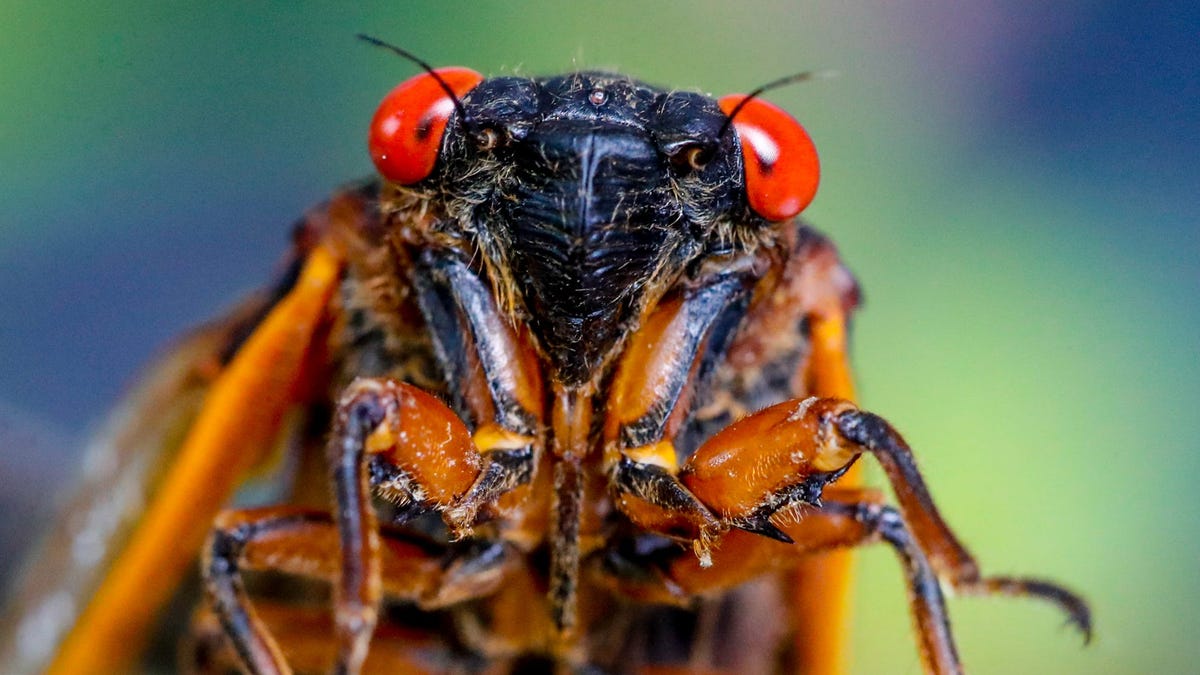South-Carolina
GamecockScoop – South Carolina Men's Basketball Flips Local Guard Cam Scott

Lamont Paris has completed the flip, and it is a major one.
Local four-star guard Cam Scott officially announced his commitment to play for South Carolina men’s basketball on Wednesday morning in a signing ceremony at Lexington High School. Scott originally committed to Texas last August, but was granted a release from his National Letter of Intent last week.
The 6-foot-5, 165 Ib. guard is rated as the No. 34 overall player in the recruiting class and No. 9 at his position, the top-rated player from the Palmetto state.
Scott is the third member of the 2024 recruiting class for Paris, joining Okku Federiko from Finland — the second Finnish player on the roster along with last year’s freshman Morris Ugusuk — and Trent Noah, the three-star forward from Harlan, Ky.
This is the fifth Rivals Top-150 prospect of the Paris era, joining GG Jackson in 2022, Collin Murray-Boyles last year, Noah in this year’s class and Eli Ellis, a current verbal commit in the class of 2025. Scott is the second-highest rated of those players, only behind the former top-10 prospect and current NBA player Jackson.
Scott also marks the 3rd straight year that Paris has managed to land the top rated prospect in the state of South Carolina, joining Jackson and Boyles.
****************************************************************************
Want 2 months free on your Rivals subscription? Refer a friend and they’ll get 50% off their first year while you get 2 months free, and the best part? You can do it as many times as you want. Just use your custom referral link on your subscriptions page (linked above).

South-Carolina
Father, daughter complain about ‘pimples’ on new house but builder won’t fix since ‘it’s not a manufacturer’s problem’

A South Carolina homeowner is frustrated after poor construction left their new abode covered in “pimples.”
The new home, which was one of the first built inside the Cypress Preserve subdivision in Moncks Corner, SC shows off its flaws under direct light.
“When I first looked at the house in the summer, the sun hits the side of the house, and the nails on the sheathing aren’t nailed all the way in so the vinyl expands and contracts. And when the sun hits it, and it looks like pimples all over,” Tom Eriksen told WCSC.
Eriksen’s daughter purchased the home in 2022 and when the “pimples were noticed the family immediately contacted the Lennar Corporation, the company tasked with building the entire community.
But when shown the company’s super examined the build, he didn’t own up to the poor craftsmanship.
“’Their super came out here, looked at the house,’ he says, ‘Yeah, but it’s not a manufacturer’s problem.’”
‘”It’s not a manufacturer’s problem, You installed it wrong. You’ve got to correct it. It looks terrible,” Eriksen replied.
“They say, ‘No, we’re not going to do anything with it.’”
After the original visit to the home, Lennar hasn’t responded to any of the multiple follow-up calls the family has sent, according to the outlet.
Eriksen, who owned his own construction business for 40 years says he is helping his daughter get her home fix because even though its not a “structural issue per se” it’s Lennar’s problem because they built it.
“I see it every time I drive up to the house,” Eriksen said. “This is like the whole house — sides, back, front. Whenever the sun hits it.”
The angered father is calling for the company to fix the problems to all the homes they built starting with the homeowners that have lived in the community the longest.
“Start servicing at least the first people that moved in here,” he said. “She was one of the first buyers before anyone came in and you’re not servicing them or taking care of your problems.
“It’s not a good outlook for the other 800 families that are going to move in here,” Eriksen added.
Moncks Corner is located 33 miles north of Charleston.
A home inspector also called out the company for not holding up to their agreement when it comes to house building, saying many builders don’t realize they have to keep up with repairs of the house beyond the one year mark.
“There’s a very common misconception that homeowners have that the builder, after the first year, he has no responsibility to repair anything else in the house,” Robert Knowles told Live 5 News. “Well, that’s not true.
“The law is not optional: you have to comply with the code requirements. The builder is legally required to fix anything that goes wrong with your house that is related to a code.
“If you bring a code violation to a builder’s attention, he needs to repair that,” Knowles added.
The state of South Carolina has adopted the Residential Construction Standards that homebuilders must abide by, according to the outlet.
South-Carolina
2 South Carolina organizations file joint ethics complaint against Scout Motors

COLUMBIA, S.C. (WIS) – Two organizations filed a complaint against Scout Motors Monday, requesting that the South Carolina State Ethics Commission investigate whether the company violated state ethics law.
Jointly filed by the South Carolina Policy Council (SCPC) and the South Carolina Public Interest Foundation (SCPIF), the complaint concerns a nearly $1.3 billion incentive package the company received last year for their electric-vehicle assembly plant that is under construction in Blythewood.
A spokesperson with Scout Motors said these allegations are “factually incorrect.”
The organizations are asking the commission to investigate if Scout Motors violated state law by failing to register as a lobbyist principal before the $1.3 billion was approved. SCPC said the company first registered as a lobbyist principal with the commission a month after the package went into effect on March 20, 2023.
A spokesperson with Scout Motors said: “Scout Motors did not have registered lobbyists in South Carolina before April 2023 because we were not lobbying. Scout Motors had no direct role in advancing the legislation that passed last year.”
Findings from the SCPC’s investigate news branch revealed meeting between Scout Motors officials and Governor McMaster or state lawmakers before Scout Motors registered.
The organizations listed a private meeting between a Scout Motors official and representatives of the Governor’s Office in October 2022 in Washington D.C., as well as two private events in February 2023: a private dinner at the Governor’s Mansion where both McMaster and Scout Motors CEO Scott Keough were present, and a private event at the Williams-Brice football stadium billed as a “Confidential Economic Development Dinner.”
The state law they accuse Scout Motors of violating is intended to provide the public with advance notice of companies or organizations that plan to persuade state lawmakers to adopt their legislative agendas.
WIS News 10 reached out to the Governor’s Office and has not yet heard back.
Feel more informed, prepared, and connected with WIS. For more free content like this, subscribe to our email newsletter, and download our apps. Have feedback that can help us improve? Click here.
Copyright 2024 WIS. All rights reserved.
South-Carolina
Cicada ‘roar’: Concerned SC residents call police. What to know about cicada emergence.

Cicadas in Indiana: Brood X’s singing cicadas coming to a tree near you
Meet Brood X’s singing cicadas with Timothy J. Gibb, Purdue University, Department of Entomology, March 4, 2021.
Michelle Pemberton, Indianapolis Star
Last week, the Newberry County Sheriff’s Office was swarmed by phone calls from local residents who were concerned about a particular sound they were hearing outdoors.
“We had several calls about a noise in the air that sounds like a siren, or a whine, or a roar,” the sheriff’s office said in a Facebook post.
So, what exactly was all the buzz about?
“The sound is cicadas,” the post said. “Cicadas are a super family of insects that appear each spring. The nymphs have lived underground for 13-17 years and now this time they are hatching.”
Brood XIX cicadas may be on the rise in the Upstate, but the sheriff’s office has assured residents that the insects are just a nuisance ― not a threat.
“Although to some the noise is annoying, they pose no danger to humans or pets. Unfortunately it is the sounds of nature.” the post said.
What are cicadas, and what do they look like?
According to Clemson University, cicadas are thick-bodied, plant-feeding insects that can be found clinging to trees and vegetation. They measure 1-2 inches long and have compound eyes in shades of black and red, although some may emerge with blue or white eyes. Having two eyes is better than one, but cicadas are lucky enough to have three called the ocelli, which are located in the middle of their head. The wings of the insects are thick with prominent veins, and their antennae are small.
Cicadas are known for their loud, shrill noise and exoskeletons (discarded shells). Along with hemipterans like leafhoppers and spittlebugs, cicadas belong to the suborder Auchenorrhyncha. Their presence can be found worldwide. In the U.S., they live in the eastern and southern parts of the country.
Annual cicadas and periodical cicadas are oftentimes confused with one another. In South Carolina, annual cicadas, which are black and green, can be heard every year during the summer. Periodical cicadas are smaller at 1.5 inches. They are black with red eyes and orange veins within their wings, only emerging every 13-17 years. Broods XIX are periodical cicadas.
“People hear the annual cicadas every year,” said Eric Benson, Clemson University’s extension entomologist. “In the summertime when it’s hot, dog day cicadas can be heard. In the late afternoon or evening, you’ll hear that whining in the trees. Those are the cicadas, the males calling to the females. But you know, that may be tens of hundreds (of cicadas), not tens of thousands or millions. It’s just the sheer number that makes them so loud.”
How do cicadas produce their sound?
There are over 3,000 cicada species, each one having a distinct sound, according to Britannica. Males are the only cicadas to produce the sound, which is used to establish authority and attract females into mating. Prior to copulation, a courting call is also produced. Another use of sound is to deter predators. Periodical cicadas are louder than annual cicadas due to their large numbers.
The tymbal organ is a part of the cicada anatomy that is distinct from other insects, each male possessing a pair of the circular, ridged members on the back and side surface of the first abdominal segment, according to Britannica. When the tymbal muscle attached to the membrane is contracted, it bends, making a clicking sound. As the muscle relaxes, the tymbal goes back into place. The contractions are rapid in succession, moving 120-480 times a second and creating a sound that seems continuous to the human ear. The sound is amplified by air sacs containing resonant frequencies similar to the tymbal vibration frequencies. This is why cicadas sound like they are buzzing.
Are cicadas harmful to humans or pets?
Cicadas are not harmful to humans or pets and do not sting or bite, according to the United States Environmental Protection Agency. Although they are not a threat to pets, cats or dogs that consume too many of the tiny creatures may come down with a temporary upset stomach, which may lead to vomiting.
But if you see a cicada, don’t squash it ― these buzzing bugs have environmental benefits:
∎ They are a food source for birds and other predators.
∎ They can aerate lawns and improve water filtration into the ground.
∎ When they decompose, they add nutrients to the soil.
When will the cicadas die off?
Once male and female cicadas have mated and the female has laid its eggs, USA TODAY reports the insects will die after spending only five weeks above ground, according to National Geographic. In other cases, adult periodical cicadas live for just three or four weeks, according to Smithsonian Museum of Natural History.
Nina Tran covers trending topics. Reach her via email at ntran@gannett.com
-

 World1 week ago
World1 week agoShipping firms plead for UN help amid escalating Middle East conflict
-

 Politics1 week ago
Politics1 week agoICE chief says this foreign adversary isn’t taking back its illegal immigrants
-

 Politics1 week ago
Politics1 week ago'Nothing more backwards' than US funding Ukraine border security but not our own, conservatives say
-

 News1 week ago
News1 week agoThe San Francisco Zoo will receive a pair of pandas from China
-

 World1 week ago
World1 week agoTwo Mexican mayoral contenders found dead on same day
-

 World1 week ago
World1 week agoBrussels, my love? The EU single market is not sexy enough for voters
-

 World1 week ago
World1 week agoEU sanctions extremist Israeli settlers over violence in the West Bank
-

 Politics1 week ago
Politics1 week agoRepublican aims to break decades long Senate election losing streak in this blue state














